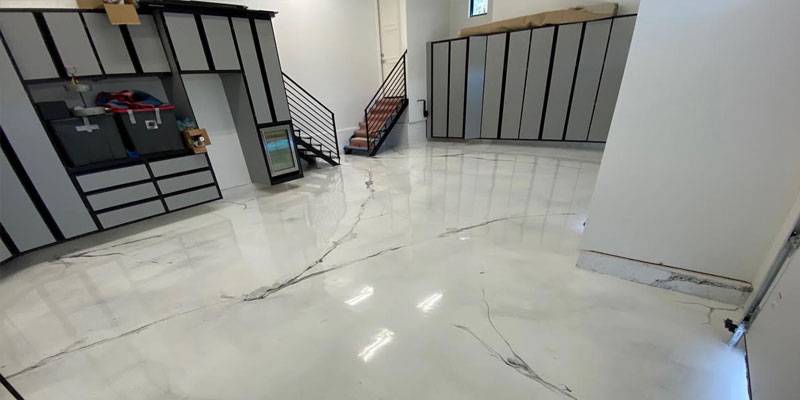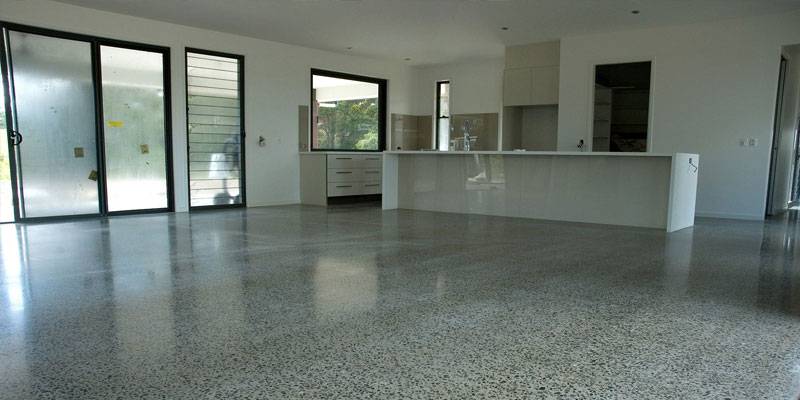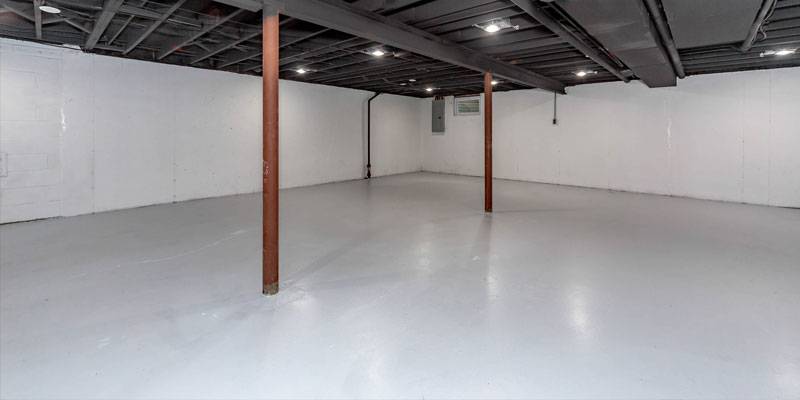Is Basement Epoxy Worth It? Learn the Facts

One of the most popular and cutting-edge choices for basement flooring today is epoxy. Epoxy is a plastic resin that can be applied as a coating to just about any surface. It’s commonly used in industrial and commercial settings because it’s so durable, but more and more homeowners are beginning to see the benefits of using epoxy in their homes. If you’re considering epoxy for your basement floor, here are some things you should know.
Table of Contents
What Is Epoxy?

Epoxy is a thermosetting plastic resin that begins as a liquid and hardens into a solid when cured. Once it cures, it forms a very strong bond with the surface it’s been applied to. This strength makes epoxy such a popular choice for floors in high-traffic areas.
Why Is Epoxy a Good Choice for Basements?

There are several reasons why epoxy is a good choice for basement floors. First, it’s extremely durable and will withstand much wear and tear. It’s also resistant to stains and chemicals, so it’s easy to keep clean. Another advantage of epoxy is that it can be applied to just about any surface, even if it is uneven or has minor imperfections. And finally, epoxy is a surprisingly affordable flooring option.
12 Reasons to Install an Epoxy Floor in Your Basement
If you’re still on the fence about whether or not to install an epoxy floor in your basement, here are 12 reasons that might sway you:
1. Durable and Long-Lasting
One of the biggest advantages of epoxy floors is their durability. Epoxy is a very tough material that can withstand a lot of wear and tear. With proper maintenance, an epoxy floor can last for many years.
2. Easy to Clean and stain-resistant
Epoxy floors are very easy to clean because they are nonporous and resist stains. You won’t have to worry about spills or tracked-in dirt ruining your floor.
3. Chemical Resistant
Another advantage of epoxy floors is that they are resistant to chemicals. This makes them ideal for homes with pets or small children, as well as for businesses that use harsh chemicals.
4. Slip-Resistant
Epoxy floors can be made slip-resistant by adding a special additive to the mixture. This is ideal for homes with young children or elderly residents.
5. Increased Safety
Slip-resistant epoxy floors can help reduce the risk of accidents in your home or business.
6. Hide Imperfections
Epoxy can be applied to uneven or damaged surfaces, which makes it a great choice for older homes with less-than-perfect foundations.
7. Easy Installation
Epoxy floors are relatively easy to install, especially if you choose a DIY kit.
8. Versatile Design Options
Epoxy floors come in a wide variety of colors and finishes, so you can customize the look of your floor to match your décor.
9. Affordability
Despite their many benefits, epoxy floors are actually quite affordable.
10. Increased Home Value
Because epoxy floors are so durable and increase the curb appeal of your home, they can actually increase the value of your property.
11. Environmentally Friendly
Epoxy is a non-toxic, water-based material that is safe for both people and the environment.
12. DIY or Professional Installation
You can install epoxy floors yourself with a DIY kit, or you can hire a professional for the job.
The Different Types of Basement Epoxy Coatings
Now that you know all about the benefits of epoxy floors, you’re probably wondering what type of epoxy coating is best for your basement. Here are the three most popular types of basement epoxy coatings:
Solid Color Epoxy
Solid color epoxy is the most popular type of epoxy flooring. It’s easy to install and comes in a wide variety of colors, so you can customize the look of your floor.
Flake Epoxy
Flake epoxy is a type of flooring that has small pieces of color “flakes” added to the epoxy mixture. This creates a unique, multi-colored look for your floor.
Metallic Epoxy
Metallic epoxy is a type of epoxy that contains metallic pigments. It’s often used to create floors with a marble or granite appearance.
Frequently Asked Questions About Basement Epoxy Floors
If you have questions about epoxy floors, you’re not alone. Here are answers to some of the most commonly asked questions about epoxy floors:
1. How much does an epoxy floor cost?
The cost of an epoxy floor depends on a number of factors, including the type of epoxy, the size of your basement, and whether you hire a professional or do it yourself. Generally speaking, epoxy floors are very affordable.
2. How long does an epoxy floor last?
With proper maintenance, an epoxy floor can last for many years.
3. Is an epoxy floor slippery?
Epoxy floors can be made slip-resistant by adding a special additive to the mixture. However, they are not naturally slippery.
4. How do you clean an epoxy floor?
Epoxy floors are very easy to clean because they are nonporous and resist stains. You can simply sweep or mop the floor as needed.
5. Can you put epoxy over tile?
Yes, you can put epoxy over tile. However, it’s important to make sure that the tile is properly sealed before applying the epoxy.
6. Do I need a special cleaner for an epoxy floor?
No, you don’t need a special cleaner for an epoxy floor. You can simply use a mild soap and water solution.
